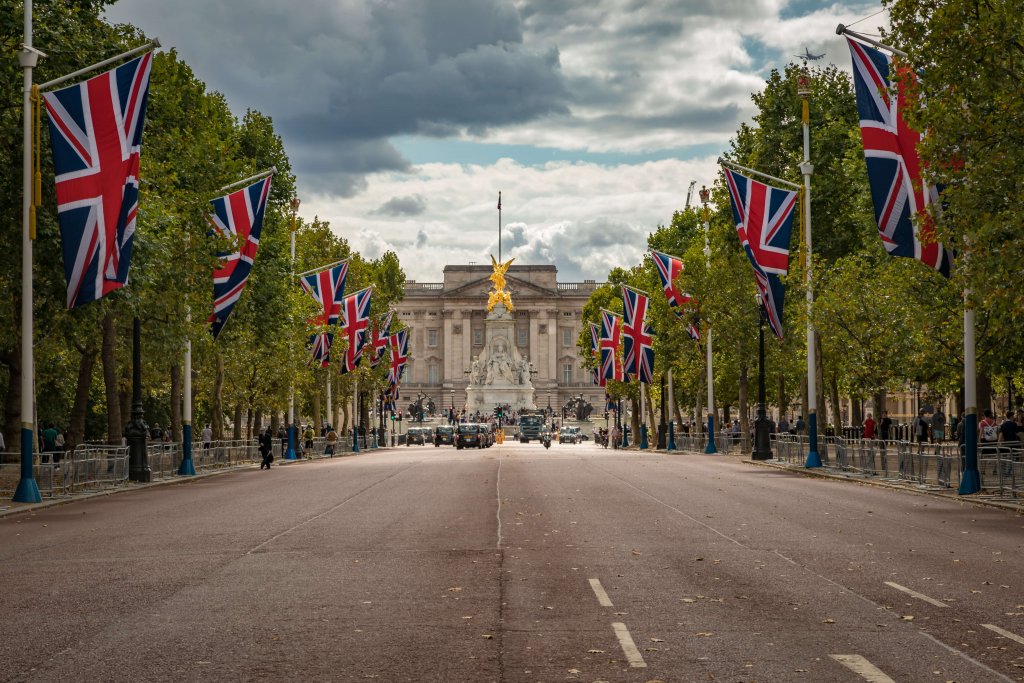
Yazının Türkçesine ulaşmak için tıklayınız.
Cultural intimacy, according to anthropologist Herzfeld (2005: 3), is “the recognition of those aspects of a cultural identity that are considered a source of external embarrassment but that nevertheless provide insiders with their assurance of common sociality.” In this short paper, I will attempt to analyse how cultural intimacy has been manifesting itself regarding the global Covid-19 pandemic in the United Kingdom (UK), which has been experiencing one of the highest numbers of daily Covid-19 deaths in Europe, and considerable shortages in its national health-care system.
Jelena Subotic and Ayşe Zarakol (2013: 916) argued that when a country is stigmatized by other international actors, state identity is threatened because modern states derive part of their legitimacy from their ability to gain recognition and respect on the international stage. This means that international criticism needs somehow to be compensated by re-imagining a form of national identity. States often do this by rejecting criticism and keeping the criticised behaviour in place “because often the sources of criticism are rooted in the same behaviours that hold the ‘nation’, the domestic front of state identity, together -what Herzfeld calls cultural intimacy” (Subatic and Zarakol, 2013: 916).
Brexit, which refers to the UK leaving the EU, has already placed the UK under harsh criticism by worldwide liberals since the referendum in 2016. This is also because for Brexiteers, leaving the EU was also considered as sort of an ‘Independence Day’ for a country that once ruled the ‘largest empire in history’. Just at a time the UK led by the Conservative Government secured its way out of the EU, however, it found itself hit, like all other countries, by the global pandemic Covid-19. It has been indeed a challenging time for the UK, because a global pandemic requires a great deal of international but also regional cooperation, since not all governments are well equipped to confront such crises. The Covid-19 epidemic has in fact exposed both the unpreparedness of individual governments in dealing with the crises and the weakness of the global governance.
Although horrific stories concerning the consequences of the Covid-19 pandemic had already emerged from Italy, followed by Spain and France, the UK government preferred to wait to take the necessary measures to protect its citizens, such as imposing early social distancing measures, contact tracing, early testing and increasing the medical equipment and number of intensive care beds. The UK government’s attitude towards the pandemic during this time could even be described as dismissive, especially since it initially promoted the ‘herd immunity’ approach, which is to let enough people to get sick and gain immunity against the disease. However, a report published by scientists at the Imperial College amply disrupted this policy, as it estimated that more than half a million British people would have died from Covid-19 if the government did not take drastic measures. The British government accordingly placed the UK on a police-enforced quarantine and several politicians, including the prime minister, have since then urged the people to stay home in order to ‘Save the NHS’. This discursive formulation was indeed striking. While in other parts of the world, the necessity of lockdown was formulated as ‘You need to stay home in order to save lives, vulnerable communities or reduce the pressure on the healthcare’, the spin in the UK was on to save the NHS, Britain’s National Health Servicesystem.
The NHS: The British national pride
The NHS, similar to many other countries in the world, is paid for via national taxes and provides free or subsidised health care for all legal residents in the UK. However, in Britain, it is also one of the most important constituents of the national pride. Children learn about it at school as one of the greatest British achievements. It was also celebrated in the 2012 Olympics’ opening ceremony hosted by the UK. According to the BBC, it regularly features among the top reasons why people feel proud to be British. The British Conservative politician Nigel Lawson described the NHS as “the nearest thing we have to a national religion”.
At the same time, however, because there are fewer beds, doctors and nurses per patient in the UK than in other European countries, waiting times for a treatment is a serious problem, even for emergency cases, and some services are already privatised. Many British people hence seek health services in the private sector or travel to EU and/or non-EU countries for a better treatment. Key findings of a 2018 Nuffieldtrust Report suggest that the UK appears to perform “less well than similar countries on the overall rate at which people die when successful medical care could have saved their lives”. The report also shows that the UK has markedly fewer doctors and nurses than similar countries, relative to the size of its population, and fewer CT scanners and MRI machines as well. This is because the UK spends a lower proportion of its budget on healthcare than some other major EU countries, such as France, Germany and Sweden.
The Covid-19 pandemic has therefore exposed an already existing weakness of the British public healthcare system: the NHS was not and is not prepared to fight against a pandemic, as it lacked even the basic medical equipment such as gloves, masks, ventilators and body bags. Several GP surgeries needed to receive the necessary equipment as donations at times from the minority communities in the UK.
Rather than critically reflecting upon and/or apologising for the apparent vulnerabilities due to the previous cuts in the public spending, the British government and pro-government media, however, have preferred to evade them. They have tried to appeal to people’s national pride in the NHS. Speaking in a video message after leaving St Thomas’ Hospital in south London, where he was recovered in intensive care due to having contracted the virus, Prime Minister Boris Johnson thanked the public for serving as a “human shield”around this country’s greatest national asset “our National Health Service”. His words were particularly telling: “We understood and we decided that if we could together keep our NHS safe, if we could stop our NHS from being overwhelmed, then we could not be beaten and this country would rise together to overcome this challenge, as we have overcome many challenges in the past”. Queen Elisabeth’s emotional speech a week prior to Boris Johnson’s included a similar patriotic tone, as well. This once more points to a discursive strategy aimed at obliterating the fact that an advanced capitalist economy such as the UK, capable of exporting technology across the world, had failed to protect its citizens due to the lack of basic medical equipment.
As aptly put by Ramsey, this pandemic reveals a striking contradiction between reality and rhetoric:
“On the one hand, there is the material: a story of incompetence in high office, of government failure and human suffering; the lack of rigorous testing or personal protective equipment, the fumbled shift from herd immunity to social isolation; a bailout which fails to support millions and a foreign policy which fails to secure international coordination. On the other, there is the sentimental: the summoning of ‘national spirit’, the rallying around the flag, the demands that we ‘unite’, and the subtle silencing of criticism that implies”.
Cultural intimacy in a time of crises
Within this context, it is remarkable how some of the British media have been complicitous with the government’s rhetoric, by for instance under reporting the high number of deaths in the country. As Zarakol and Subotic (2013: 924) remind us, “behaviours that accompany shame are in the family of avoidance: the actor displays incapacity to confront the flaw or to discuss it in an open manner”. Ifthe UK government had felt guilt rather than shame, for instance it could have taken redemptive actions. Guilt, Zarakol and Subotic (2013: 924) argue following Herzfeld, requires agency accompanied by redemptive action or at least a confession. If actors do not feel any guilt and feel safe in their identity, they display embarrassment and seek to change audience perception rather than their own behaviour.
The French philosopher, anthropologist and sociologist Bruno Latour argued recently in a radio program regarding the Covid-19 pandemic that if we do not take advantage of this incredible situation to change, we miss the opportunity of crises. Perhaps, this ‘incredible situation’ will teach the national governments to look for the real reasons behind the Covid-19 casualties, at last, and transform their policies accordingly such as privileging public investments for health. Such transformations may indeed help us to come up with a distinct understanding of cultural intimacy in the post-Covid-19 world as well, one that finally solves the existential dilemma at the heart of the modern state: the need to ‘glorify a timeless essence’, while at the same time having to commit to international and ethical norms (Subotic and Zarakol, 2013: 932).
References
Herzfeld M. (2005). Cultural Intimacy, Social Poetics in the Nation-State. NewYork and London: Routledge.
Subotic, J. and A. Zarakol (2013). “Cultural intimacy in International Relations”. European Journal of International Relations,19 (4), 915-938.
Acknowledgement: Many thanks to Alexandra Kowalski for sharing Bruno Latour’s radio program which inspired me to write this piece.
_______________________________________________________________________________________________

Emel Akçalı is a Senior Lecturer in International Relations at Swansea University in the United Kingdom. Prior to coming to Swansea, she was a resident fellow at the IMERA – Institute of Advanced Study of Aix Marseille University in France and an assistant professor at the International Relations Department of Central European University in Budapest, Hungary. Her research interests span the state, society, conflict and politics in the Middle East and North Africa, social movements, neoliberal governmentality outside of the Western realm, critical realist philosophy and non-Western and alternative geopolitical discourses.
To cite this work: Emel Akcali, “Cultural Intimacy, the NHS and the UK’s Ordeal with a Global Pandemic”, Panorama, Online Publication, 5 May 2020, https://www.uikpanorama.com/blog/2020/05/05/cultural-intimacy-the-nhs-and-the-uk-ordeal-with-a-global-pandemic/
Copyright@UIKPanorama.All on-line and print rights reserved. Opinions expressed in this work belongs to the author(s) alone, and do not imply endorsement by the IRCT, the Editorial Board or the editors of the Panorama.

